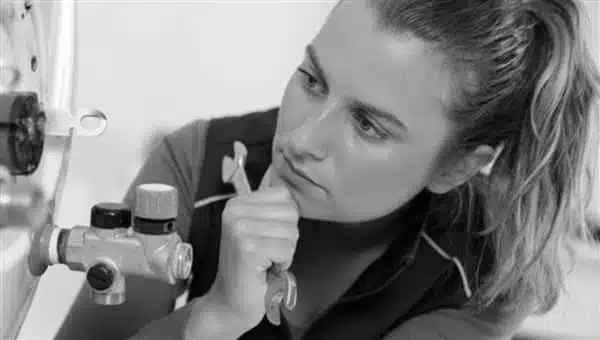As a homeowner, coming across a leaking water heater can be a frustrating and bewildering experience. The thought of dealing with plumbing issues, finding a reliable plumber, or grappling with high costs can be daunting. But, don’t panic just yet! This blog post is your definitive guide to understanding why your water heater may be leaking and what steps you can take to manage the situation effectively.
Table of Contents
Understanding the Common Causes of Water Heater Leaks
Your water heater can be quite the mystery, right? Like a clandestine operative in your basement, it carries out its mission, mostly unnoticed, until something goes wrong. Now, imagine if you could peek into its inner workings and decode its secrets? Well, that’s precisely what we’re about to do as we explore the common causes of a leaking water heater.
First on our list is the notorious pressure relief valve. This safety mechanism is designed to release water when the pressure or temperature inside the tank gets too high. However, if it’s faulty or incorrectly set, it could trigger unwarranted leaks.
Next, we delve into the tank’s interior. This is a place where the battles of wear and tear are fought. The victors? Rust and sediment buildup. Over time, these adversaries can compromise the integrity of your tank, leading to leaks.
Pipe connections are another area of interest. Although they usually appear innocent, when they’re leaky or loose, they can transform into culprits. A sudden leak around your water heater might just be a pipe connection trying to get your attention.
Lastly, we have the ticking time bomb – the tank itself. When it starts to fail, leaks can be its desperate cry for help. A deteriorating tank can be due to age, overuse, or lack of maintenance, and is usually a sign that your water heater needs replacing.
Deciphering these common causes of water heater leaks can be a game-changer in how you handle your water heater’s issues. The key is in understanding these signs and responding appropriately.
With this knowledge at your fingertips, your water heater’s secret operations are no longer a mystery. And remember, just like a top-secret mission, dealing with a leaking water heater requires prompt action, accurate identification, and effective solutions.
How to Diagnose a Leaking Water Heater
You’ve just discovered a puddle around your water heater. It’s time to play detective. Before jumping to conclusions, grab a towel, clean up the water, and give it some time. If the watery mystery guest makes a comeback, that’s your cue to start investigating.
Try to trace the water back to its source. Could it be one of those unassuming pipe connections playing tricks? Or perhaps it’s the pressure relief valve going rogue? Don’t forget to scrutinize the tank itself.
Keep in mind that a persistent leak could be more than a minor annoyance. It’s a potential property damage waiting to happen, so it’s vital to uncover the culprit sooner rather than later. Your home’s peace and tranquility may depend on it.
So, arm yourself with a flashlight and get ready to follow the trail. After all, your water heater doesn’t need to be an enigma wrapped in a riddle. With the right approach, you can be the Sherlock Holmes of water leaks, solving the mystery in no time.

What to Do If Your Water Heater is Leaking
So, your sleuthing has paid off and you’ve tracked down the source of the leak. It’s time for action! But before you dive in, remember, this isn’t a game of “Whack-a-Mole”. Thoughtful, targeted action is key.
If the leak is playing out at the pressure relief valve or a pipe connection, you might just need to tighten things up or replace the valve. Now, if the culprit is the tank, you’re dealing with a more complex scenario involving internal issues like rust or sediment. In this case, you may need to drain the tank.
But hold up, not so fast! First, hit the pause button on the power and water supply. Safety is paramount when dealing with any type of repair, and your water heater is no exception.
Remember, while a small leak might seem like a minor hiccup, when ignored, it can amplify into a full-blown water symphony. Tackling the issue head-on and promptly can save you a lot of stress and potential water damage. Stay proactive, stay safe, and when in doubt, don’t hesitate to call for reinforcements in the form of a professional plumber.
Remember, a leaking water heater is not a mystery to be feared, but a problem to be solved. By understanding the issue and knowing what action to take, you can confidently navigate this challenging homeowner situation. You’ve got this!
When to Call a Professional Plumber
Navigating the choppy waters of a leaking water heater can be a thrilling DIY adventure for some, but remember, it’s okay to call for backup. In certain circumstances, it’s not just okay—it’s the wisest decision! So, when do you dial the number of your trusted professional plumber? Let’s dive right in.
Consider the age of your water heater. If it’s been your loyal companion for over a decade, it might be signalling it’s time for a professional check-up, or even a replacement. No need for a teary goodbye, though! Just think of it as a chance for an upgrade.
Next, take a look at the state of your water heater. If corrosion has set in like an uninvited guest, it’s time to show it the door, with a professional’s help. Corrosion can be a silent saboteur, causing leaks and other serious issues. Don’t take on this formidable opponent alone.
Lastly, the magnitude of the leak is a crucial deciding factor. If you’re dealing with a persistent or significant leak, it’s time to phone a plumber. It’s like handling a ticking time bomb—best left to the experts. You don’t want a minor leak to transform into a colossal issue, do you?
Remember, when you’re in doubt or facing a water heater crisis, a professional plumber is just a call away. Their expertise can save you from causing further damage or incurring higher repair costs down the line. After all, there’s no shame in asking for help, especially when it comes to safeguarding your home from potential water damage!
How to Prevent Future Water Heater Leaks
It’s often said that an ounce of prevention is worth a pound of cure. This adage rings especially true when it comes to your home’s water heater. With consistent upkeep, you can avoid leaks and add years to your unit’s life span, keeping your water flowing smoothly and your stress levels low.
The world of water heater maintenance might seem complicated, but it’s all about regular check-ups, much like keeping your car running smoothly. Just like you would keep an eye on your tire pressure and oil levels, you should routinely inspect your water heater for any signs of trouble. Regular wear and tear are natural, but catching them early can be the difference between a quick fix and a costly replacement.
Draining and flushing your water heater periodically is like a spa day for your unit. It removes any sediment build-up that could be working like a troupe of tiny saboteurs, gradually damaging your tank from the inside. By regularly treating your water heater to this cleansing process, you can thwart these silent intruders and keep your tank in peak condition.
Think of the anode rod as the unsung hero of your water heater. This humble component battles rust so that your tank doesn’t have to. However, it can’t wage this war forever. Replacing the anode rod every few years is like giving your water heater a new shield in its ongoing fight against corrosion.
FAQs
If my water heater is leaking, what steps should I take to fix it?
It is imperative to assess the water heater and determine the source of the leakage. Meanwhile, deactivate the water heater and summon a skilled plumber to examine the problem and perform any necessary repairs.
Can I still use my water heater even if it is leaking?
The quick answer is yes, as long as you are willing to use cold water. Disabling the water heater’s input will not impact the primary water supply of your residence. You are still able to operate your washing machine or dishwasher, discharge waste from your toilet, and utilize your shower, sink, or garden hose.
Why is water leaking out the bottom of my water heater?
Leaks at the bottom of the water heater are either minor or necessitate replacement. Water heater leaks are caused by either the drain valve or the tank. Drain valves are typically tightened, but if the tank leaks, the entire system must be replaced. These replacements are pricey but necessary.
Is it an emergency if your water heater leaks?
Major leaks can cause serious problems. Water can damage your property, increase the likelihood of electrical problems, and pose a major safety risk, particularly to youngsters and the elderly. Minor leaks may typically wait, but major leaks should be addressed straight once.
Conclusion
In the end, maintaining your water heater is about playing the long game. Regular upkeep and preventative measures might seem like a chore now, but they can save you from a heap of trouble down the line. By taking these proactive steps, you’ll be extending the life of your water heater and warding off potential leaks. Now that’s a win-win situation. After all, there’s no better peace of mind for a homeowner than knowing their household is running like a well-oiled machine.
